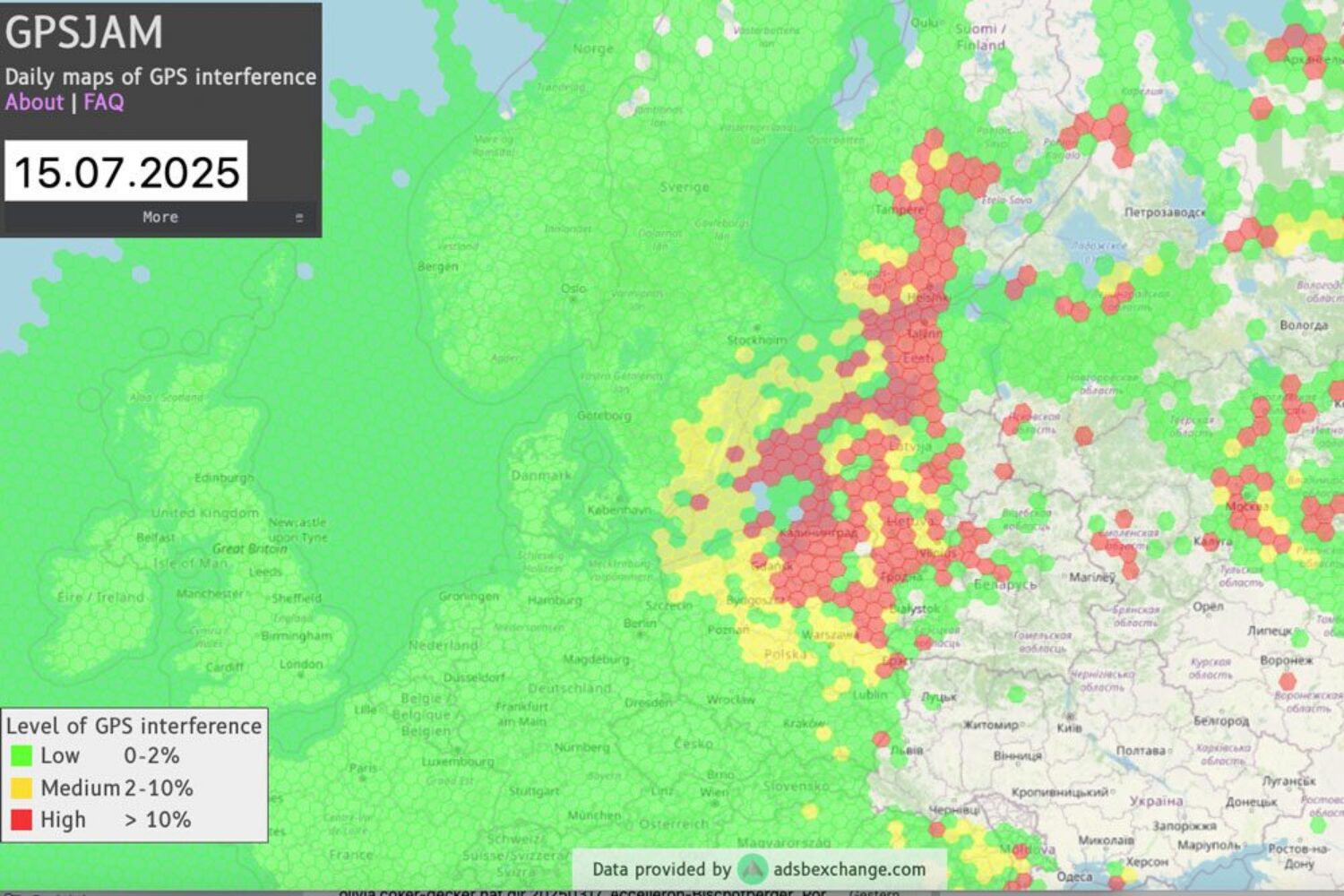Every day, maritime traffic in the Baltic Sea is subject to disruption and spoofing attacks. The effects are felt throughout Europe: supply chains come to a standstill, insurance costs rise, and more importantly, the safety of shipping is severely jeopardized.
Against this backdrop, the Kiel-based navigation specialist Anschütz has collected data and feedback to validate the performance of its gyrocompasses. The result: incidents of interference and spoofing continue to increase in the Baltic – but Anschütz’s gyrocompasses remain reliable and unaffected, according to the company.
Baltic Sea as a hotspot for malfunctions
The Baltic Sea is one of the busiest sea areas in the world. It handles a significant proportion of EU trade, and its ports are crucial hubs in global supply chains. Like almost everywhere else in the world, ships in this region rely heavily on GNSS (Global Navigation Satellite Systems) such as GPS (Global Positioning System) for navigation and positioning.
However, since the start of the war in Ukraine, the Baltic Sea has become a hotspot for GNSS jamming and spoofing incidents. In recent months, thousands of merchant ships and airplanes have reported navigation disruptions.
What are the risks?
Jamming and spoofing attacks result in ships receiving inaccurate position data or experiencing sudden jumps in position – in some cases there is even a complete loss of signal. These threats jeopardize maritime operations and expose crews and ships to significant risks. While GPS is most commonly affected, other satellite-based GNSS are also affected.
Jamming leads to the loss of GNSS signals and thus of longitude and latitude, speed over ground (SOG), and course over ground (COG). Spoofing, on the other hand, transmits falsified GNSS signals, resulting in incorrect position, speed and heading information.
These threats undermine navigation using ECDIS (Electronic Chart Display and Information Systems) and also affect other systems such as AIS (Automatic Identification System) and radar – reducing overall situational awareness on the bridge.

Accurate course data despite attacks
According to the manufacturer, Anschütz gyrocompasses offer robust, GNSS-independent heading solutions that guarantee safe navigation even under electronic attack.
The Standard 22 NX works mechanically and completely autonomously – based on an extremely robust design. It delivers a very high level of accuracy. Even when GNSS signals are disturbed, the Standard 22 NX continues to deliver precise heading data.
According to Anschütz, only the automatic speed error correction may be slightly impaired – but only if GNSS is used as the speed source. Even without this correction, the heading accuracy remains within the tolerances permitted for commercial operation, based on user experience.
The navigation manufacturer states that using a non-GNSS-based speed log and good seamanship (e.g. manual correction of the latitude) makes course accuracy completely independent of GNSS.
The maintenance-free standard 30 NX is also a reliable option. Larger spoofing anomalies are automatically filtered, trigger alarms, and do not directly affect the course information. Smaller position deviations caused by spoofing also do not have an immediate effect, but are more difficult to detect.
The Anschütz Heading Management System offers the following unique functions to restore full accuracy even in the event of interference:
- Manual input of speed and latitude during disturbances to make the system completely independent of external signals.
- Separate input of speed and latitude for each compass so different GNSS sources can be used – reducing risk as not all GNSS will be disturbed simultaneously.
- Combination of different gyrocompass types for mutual verification and anomaly detection through integrated heading monitoring.
“Using the speed of a speedlog is a way to become completely independent of spoofing and jamming attacks. More and more customers are opting for dual compass systems that combine the Standard 30 MF and Standard 22 NX to ensure technological redundancy,” says Volker Wenzel, Sales Manager at Anschütz for Nordics & Baltics. “Their robust design and advanced features make Anschütz gyrocompasses and heading management systems the ideal solution for the current threat environment in the Baltic Sea – and beyond.”













